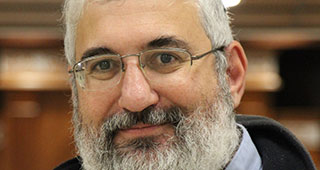Beit Midrash
- Sections
- Chemdat Yamim
- P'ninat Mishpat
Ruling: If def, as a community, had obligated themselves, that would be binding (Shut Harashbash 564). However, after hearing several testimonies, no proof was presented that def obligated themselves, just that they expressed a desire to help as possible; key witnesses testified there was no outright obligation. Even pl never claimed to have received a first-hand assurance, claiming that it was rumored that one had been made. This then is not grounds to make def pay.
Regarding the claim that pl were prevented from fundraising (by means of public protest), there is much discussion around the Yerushalmi’s (Bava Metzia 5:3) ruling that one who prevents another from getting access to his money cannot be forced to pay. While the Rama (Choshen Mishpat 292:7) rules this way, the Netivot Hamishpat (292:13) rules that if the one who held the money benefitted from it, he must pay according to that benefit. This is on condition that the owner would have clearly been able to benefit from the money at the time (see Machaneh Ephrayim, Ribbit 41; Aruch Hashulchan, CM 292:20).
In this case, pl did not prove that they would have been able to raise money had they not complied with def’s approach. More importantly, in our case, as opposed to the Yerushalmi’s, def did not do anything unreasonable. Without getting into political calculations of what steps were most appropriate, it is fundamentally normal for a community to do what their experts believe is in the community’s best interests and force individuals to go along with it (see Shut Harashba VII:340). In this case, the members of def voted after hearing the recommendations of experts who support settlement growth, as to how to deal with the situation. If an unfortunate consequence of that is that an individual like pl loses the opportunity to gain financially, that does not obligate def to compensate. Therefore, even those who rule that in certain cases of preventing gain there is at least a moral obligation to pay, here there would not be.
We will continue next time with other elements of the case.

P'ninat Mishpat (803)
Beit Din Eretz Hemda - Gazit
601 - Kippot Under What Conditions?
602 - Compensating for a Governmentally Destroyed House – part I
603 - Compensating for a Governmentally Destroyed House – part II
Load More

P'ninat Mishpat: Can the Tenant Take Off for Theft?
based on ruling 85035 of the Eretz Hemdah-Gazit Rabbinical Courts
Beit Din Eretz Hemda - Gazit | Iyar 5784

P'ninat Mishpat: Upper Property’s Responsibility for Flooding
based on ruling 82008 of the Eretz Hemdah-Gazit Rabbinical Courts
Beit Din Eretz Hemda - Gazit | Adar 5784

P'ninat Mishpat: Return of Down Payment Due to War – part III
based on ruling 84044 of the Eretz Hemdah-Gazit Rabbinical Courts
Beit Din Eretz Hemda - Gazit | Elul 5785

P'ninat Mishpat: Unsuccessful Transfer of Yeshiva – part IV
based on ruling 82138 of the Eretz Hemdah-Gazit Rabbinical Courts
Beit Din Eretz Hemda - Gazit | Nisan 5784

Beit Din Eretz Hemda - Gazit

Profits from Formerly Joint Swimming Pool – part
(based on ruling 81110 of the Eretz Hemdah-Gazit Rabbinical Courts)
19 Sivan 5784

Departure of an Uncle to Eretz Yisrael
Igrot Hare’aya – Letters of Rav Kook: Vol. I, #1 , p. 1-2 – part II
Tevet 21 5781

Who Breached the Contract? – part IV
Based on ruling 81087 of the Eretz Hemdah-Gazit Rabbinical Courts
Iyar 20 5783
























